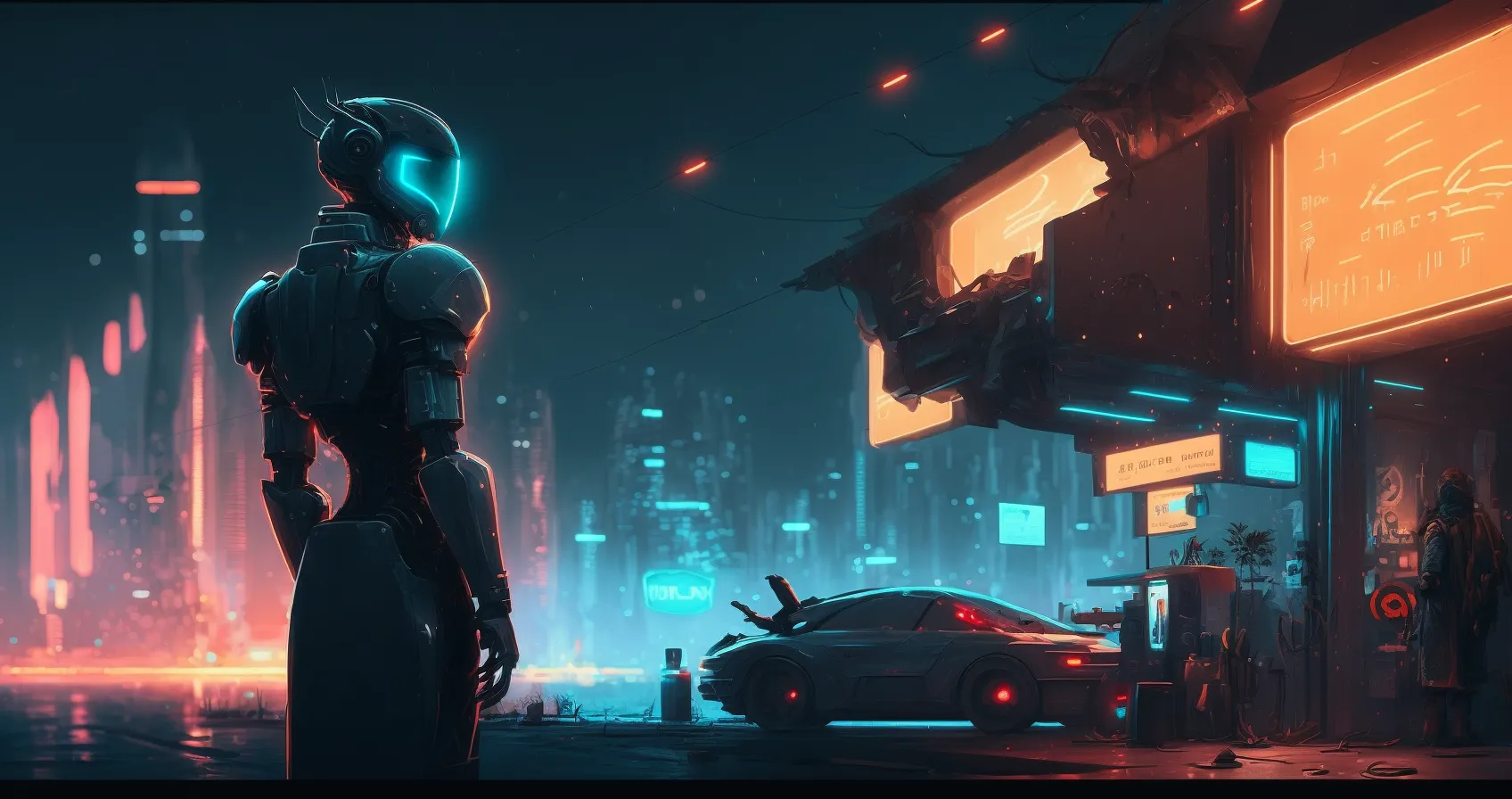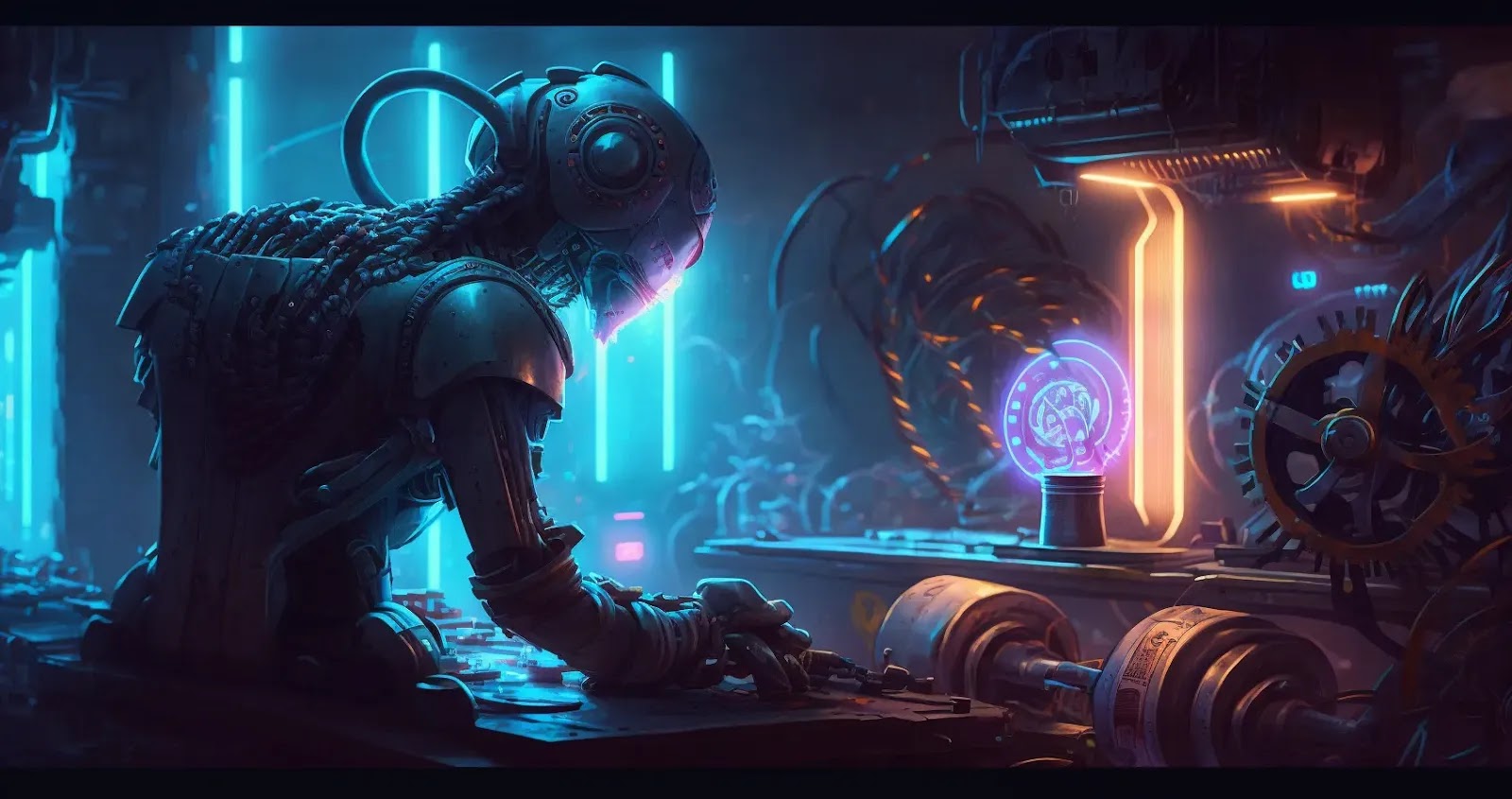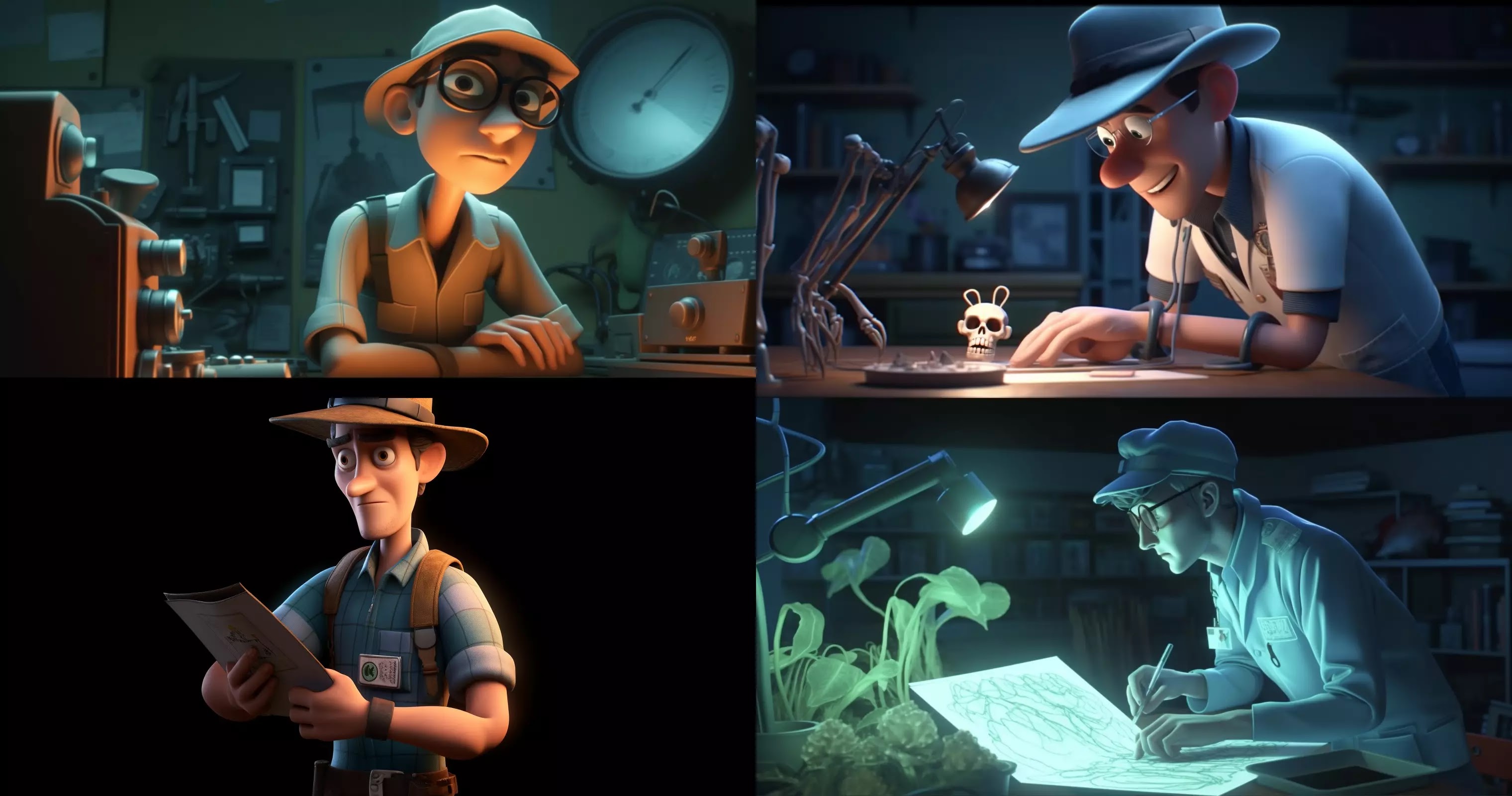As artificial intelligence (AI) continues to develop at a rapid pace, many workers are understandably concerned about whether their jobs are at risk of being replaced. While some jobs are more likely to be automated than others, the reality is that no job is completely safe from the impact of AI. In this article, we’ll explore which jobs are most likely to be replaced by AI in the near future.
Quick Navigation:
MidJourney for Artist
MidJourney is a startup that focuses on using artificial intelligence to create customized graphics and visual content for businesses. Their platform uses machine learning algorithms to analyze data and create visual representations that are tailored to a company’s specific needs.
MidJourney’s AI technology can create a wide range of visual content, including infographics, data visualizations, social media graphics, and more. They claim that their platform can create these visuals faster and more efficiently than a human designer, and at a lower cost.
However, it’s important to note that AI is not necessarily a replacement for human designers in the graphics industry. While AI technology can create certain types of visual content quickly and efficiently, it may not be able to replicate the creativity and unique perspective that a human designer can bring to a project.

Additionally, many businesses may still prefer to work with human designers for certain projects, particularly those that require a more personal touch or a higher level of customization.
Overall, while MidJourney and other AI-powered graphics platforms may provide competition for human designers, there is still plenty of room for both to coexist and offer unique value to businesses. As AI technology continues to advance, it will be interesting to see how it shapes the future of the graphics industry.
Customer Service and Support
Another area where AI is poised to have a significant impact is in customer service and support. Chatbots and other AI-powered tools are already being used to provide basic support and assistance to customers, and this trend is only set to continue in the future. In fact, Gartner predicts that by 2022, up to 85% of customer interactions will be handled without the need for human intervention.

While AI-powered customer service tools can provide significant cost savings and efficiency gains for businesses, they can also pose a threat to human jobs in the industry. Workers in these roles will need to focus on developing skills that can’t be easily replicated by AI, such as emotional intelligence, empathy, and problem-solving ability.
ChatGPT for writer and coder
Another company that could potentially be affected by AI in the future is ChatGPT, a company that specializes in writing and coding. AI has already been used to generate basic news articles and even creative writing pieces, leading some to wonder if AI could eventually replace human writers.
However, it’s important to note that AI-generated content still has limitations and is not yet capable of replacing human creativity and nuance. Human writers bring a unique perspective and creativity to their work that AI simply cannot replicate.
Additionally, writing and coding often require a high level of critical thinking and problem-solving skills, which are currently beyond the capabilities of most AI systems.
That being said, AI is already being used to assist writers and coders in a number of ways. For example, AI can be used to proofread and suggest edits to written content, or to identify and fix bugs in code. In this way, AI can actually help human writers and coders to work more efficiently and effectively.
As with other industries, the key to staying relevant in the face of advancing AI technology is to adapt and evolve. Companies like MidJourney and cGPT can stay ahead of the curve by embracing AI technology as a tool to enhance their work, rather than viewing it as a threat.
By staying up-to-date on the latest AI developments and incorporating them into their work processes, these companies can continue to provide value to their clients and remain competitive in the marketplace.
Manufacturing and Assembly Line Work
Manufacturing and assembly line work has long been a target for automation, and AI is set to accelerate this trend even further.
Robots and other AI-powered machines can be used to perform a wide range of tasks in these industries, from assembly and packaging to quality control and maintenance.

While automation in these industries can provide significant benefits in terms of efficiency and productivity, it can also lead to job losses for human workers.
As a result, workers in these industries will need to focus on developing skills that are less likely to be automated, such as creative problem-solving and adaptability.
Data Entry and Clerical Work
One of the most common applications of AI is in data entry and clerical work. With the ability to analyze and process large amounts of data quickly and accurately, AI-powered tools can help automate many of the routine tasks involved in these jobs.
This includes everything from scanning and inputting documents to organizing files and managing databases.
While AI is unlikely to replace human workers in these roles entirely, it will certainly reduce the number of employees needed to perform these tasks. As a result, workers in these industries will need to develop new skills in order to remain competitive and relevant in the workforce.
Transportation and Delivery
AI is also set to have a significant impact on the transportation and delivery industry. Autonomous vehicles and drones are already being tested and deployed for a wide range of applications, from package delivery to long-haul trucking.
As this technology becomes more advanced and widespread, it’s likely that many human jobs in the industry will be replaced by AI.
While autonomous vehicles and drones can provide significant benefits in terms of safety, efficiency, and cost savings, they can also pose a threat to human workers in the industry. Workers in these roles will need to focus on developing skills that are less likely to be automated, such as creative problem-solving and interpersonal communication.
Healthcare and Medicine
Finally, AI is also set to have a significant impact on the healthcare and medicine industry. From predictive analytics and diagnosis to drug discovery and treatment planning, AI-powered tools are already being used to improve the accuracy and efficiency of many healthcare tasks.
While AI is unlikely to replace human healthcare workers entirely, it will certainly change the nature of many jobs in the industry. Workers in these roles will need to focus on developing new skills, such as data analysis and interpretation, as well as interpersonal communication and empathy.
The Last Words
while the impact of AI on the job market is still evolving, it’s clear that many industries and job roles will be affected in the near future. Workers in these industries
will need to adapt to new technologies and skill sets to remain competitive in the job market. At the same time, policymakers, educators, and business leaders will need to work together to ensure that the workforce is prepared for the changes brought about by AI and that opportunities for employment and career growth are available to everyone.
One potential solution is investing in education and training programs that equip workers with the necessary skills to work alongside AI and other emerging technologies. This could involve retraining programs for workers whose jobs are at risk of automation, as well as providing STEM education and other forms of training to prepare the next generation of workers for the jobs of the future.
It’s also important to ensure that there are policies in place to protect workers’ rights and ensure that they are not unfairly disadvantaged by the rise of AI. This could include measures like a universal basic income, stronger labor protections, and regulations to ensure that AI is developed and deployed in a way that is ethical and responsible.
Overall, the impact of AI on the job market will be significant, but with the right investments in education, training, and policies, we can ensure that workers and businesses alike are able to thrive in the new era of AI-driven automation.

![25 Great Jobs that Work from Home or Anywhere [Remote work]](https://jobsmarketupdate.com/wp-content/uploads/2021/10/Great-Jobs-that-Work-from-Home.jpg)




